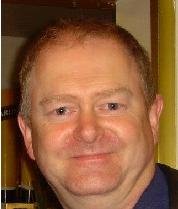Sep 25 2009
Professor Ian W Boyd of the London Centre for Nanotechnology (LCN) will take the first leadership role over the new Melbourne Centre for Nanofabrication (MCN) from the 1st of October.
 Professor Ian W Boyd
Professor Ian W Boyd
The Melbourne Centre for NanoFabrication provides Australia’s leading scientists and engineers with the tools to build miniature devices that could potentially revolutionise many advanced industrial spheres, including the health care, information technology and environmental maintenance sectors. The MCN couples state of the art instrumentation for nano- and micro- scale fabrication – that is, for fabrication at the scale of between 1/10,000 and 1/100,000 of a human hair – with purpose built laboratories for making ever smaller, more powerful and more effective devices such as drug delivery devices, diagnostics and water sensing for improving our health and the health of our environment.
Professor Ian Boyd obtained 1st class BSc (1979) and PhD (1982) degrees at Heriot-Watt University where he received the Watt Medal for distinction and class prize for best student. He subsequently worked in medical physics at WGH in Edinburgh and as a CMOS process engineer in Scotland’s Silicon Glen and spent several years at the University of North Texas developing picosecond lasers and studying their non-linear optical applications. In 1985, he became a lecturer at UCL in Electronic and Electrical Engineering, and founded the Laser Processing Group. After successive promotions to senior lecturer and reader. He was appointed to the first chair of Electronic Materials in 1994.
He is currently the head of the 22-strong Materials & Device Group that studies the fundamental aspects, development, and applications of thin film processing, and novel devices. In 1992, he co-founded UCL's Centre for Materials Research leading to the formation of the London Centre for Nanotechnology of which he is currently director of nanoelectronics and member of the executive committee.
Prof. Boyd has written and/or edited 8 books, published around 300 papers, and delivered 200 conference papers (45 invited) at international level on many aspects of laser processing and electronic materials, from insulators to magnetic layers and superconductors. He has personally co-chaired 12 international conferences across Europe, Japan, and N. America and served on more than 25 additional conference advisory committees. In 2010 he will be a general co-chair of the EMRS conference in Strasbourg.
Prof Boyd is also consultant to several international companies, a Fellow of the IEE and the IOP, and both a chartered engineer and chartered physicist. He is an elected member of the Executive Committee of the European Materials Research Society (EMRS), having served as its President from 1996-1997. He is also a co-founding member of the International Union of MRS societies. Prof Boyd has served on the editorial board of numerous journals, on a range of international advisory committees for UK and European research institutes, including CNRS (Italy), CRN (France) and IMEC (Leuven), and was the founding chairman of the IET Professional Network on Materials and Devices. In 2005 he was the recipient of the prestigious Yarwood Medal and Senior Prize of the British Vacuum Council, and in 2008 elected to the Executive Board of the Materials Research Society.